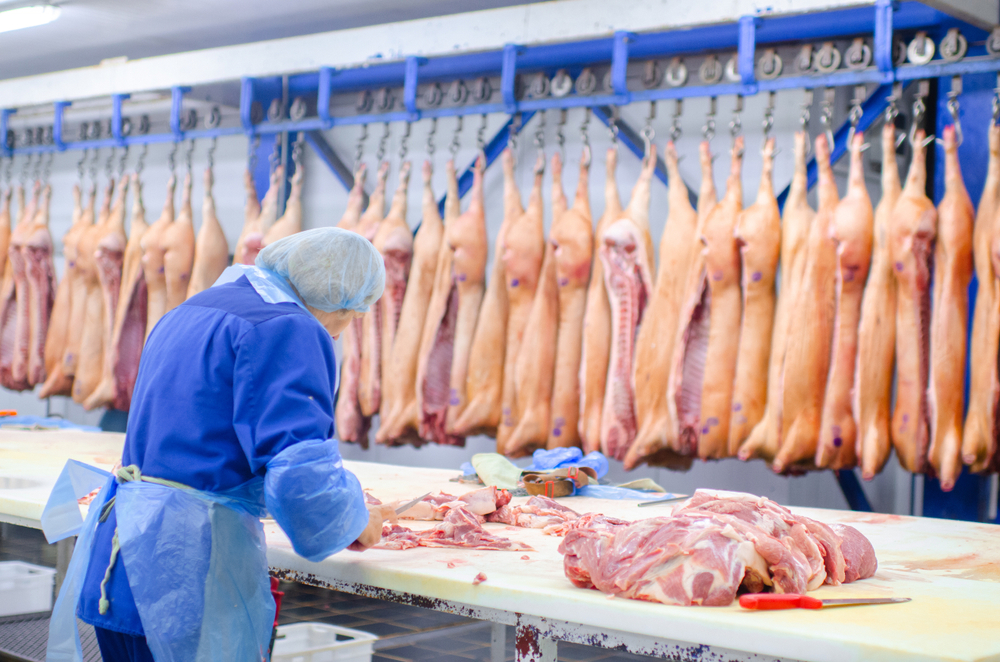Many organizations note this could result in higher risk of injury to workers.

For years, the Trump administration worked to eliminate limits on the speed a meat processing plant operates at. This was a popular move in the meatpacking industry, which saw it as a way to process more animals and make more money—faster. But facing criticism about the worker safety issues involved, one of the Biden administration’s first moves was to freeze that speed increase. Now, the Biden administration seems to have reversed course, creating a new pilot program for nine large processing plants to increase their speeds.
Reuters reports that the USDA will begin a one-year trial for nine large hog processing plants, including ones owned by JBS, Tyson and Smithfield. This trial will, according to the USDA, be used to gather data and create safe work environments in a higher-speed processing environment.
Meat processing line speeds have been a wrestling match for years. There have been various pilot programs similar to this, including one operated under Democratic Presidents Clinton and Obama. For that previous program, a 2013 report from the USDA Office of Inspector General found significantly higher safety violations in plants with less oversight and more speed. But because deregulation and increased line speeds are so obviously conducive to higher profits, the meat industry has long pushed for these sorts of permissions.
The Trump administration’s plan was designed to place monitoring in the hands of the plant operators themselves, rather than USDA inspectors, and to all but eliminate line speed limits. In March 2021, a federal court essentially canceled the line speed expansion, a decision that was pilloried by the meat industry. The Biden administration, which had previously frozen line speed limit increases, said it would follow the decision of that court.
Now, though, the Biden administration seems to have changed their minds. The meat industry has often cited a Food Safety and Inspection Service study that indicated increased line speeds are not correlated with increased injuries, but that study could be misinterpreted. According to a follow-up, the USDA Office of Inspector General found that the FSIS did not verify the data used, may have used inaccurate data and eventually even declined to use that study at all when making regulations.
Data indicating the exact opposite, that increased line speeds are dangerous to workers in the form of increased accidents and repetitive stress injuries, are certainly out there, but tend to be anecdotal. It is not exactly in the interest of a meatpacking plant to carefully monitor and honestly and transparently divulge that their super-profitable faster methods are less safe. As a result, those fighting the line speed increases rely on worker testimonials and specific studies from agencies like the Government Accountability Office and the Occupational Safety and Health Administration.
In any case, this news was met with dismay by worker’s rights advocates. “With this decision, the Biden administration is caving to industry pressure,” writes Food & Water Watch’s senior staff attorney, Zach Corrigan, in a statement.